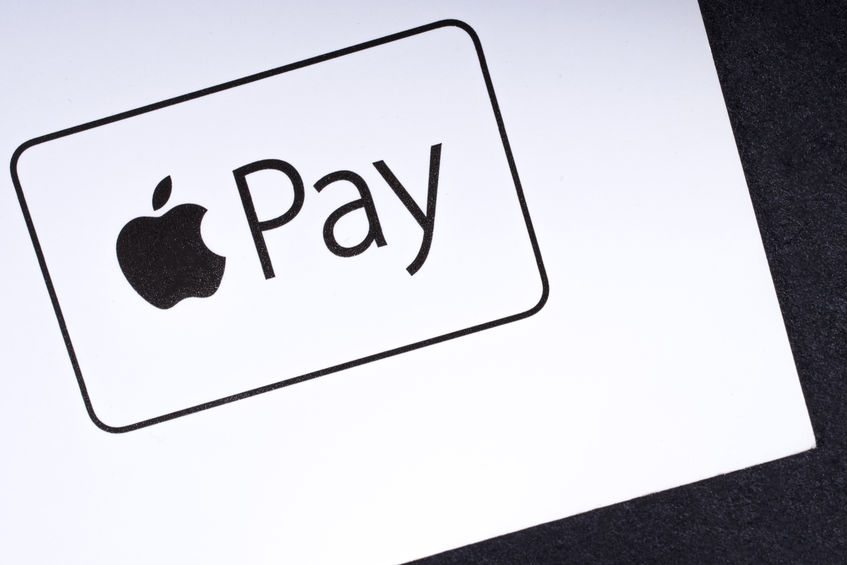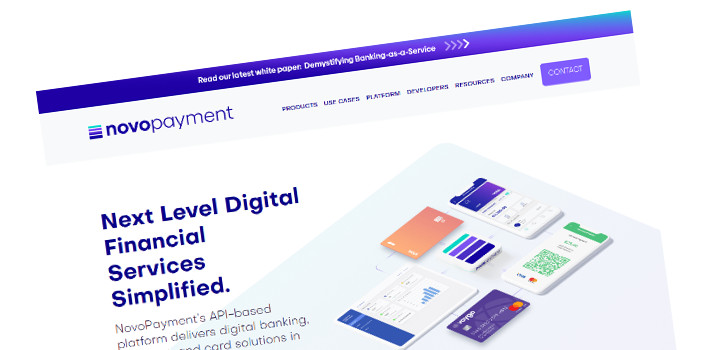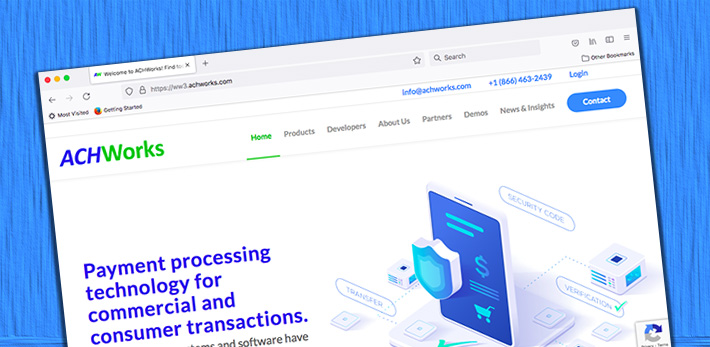payments
Square Activates Paying With Dollars Over Bitcoin Lightning Networks Rails
November 16, 2025Square is rolling out Bitcoin acceptance in every state across the US except New York and with that the prospect of skipping merchant processing fees if their customers pay with Bitcoin. Square is taking direct aim at the card payment networks and their bank partners, eliminating chargeback risk, and bypassing their fees. The twist is that customers need not even have Bitcoin and the merchants need not know much about Bitcoin. Instead, Cash App customers that have a cash balance in their accounts can simply pay a Square merchant with dollars using Bitcoin’s Lightning Network rails.
Customers that do in fact have Bitcoin can also pay a Square merchant using Cash App or any other Lightning Network compatible wallet such as Coinbase and also spare the merchant from a transaction fee. Block, Square’s parent company, is hoping that Bitcoin payments take off.
“It’s time,” tweeted Block CEO Jack Dorsey, “the independent and free currency is here.”
Block is going all-in on Bitcoin since Dorsey, a long-time advocate, financier, and evangelist for Bitcoin, is trying to shift the narrative of Bitcoin’s use-case in the public sphere back to everyday money and away from its current status as a Wall Street investment or digital gold. (The editor of deBanked has long claimed that Jack Dorsey is probably Satoshi Nakamoto, Bitcoin’s pseudonymous founder). Block has even replaced its existing peer-to-peer Cash App network with the Bitcoin Lightning Network. That means Cash App users accustomed to using a $cashtag can now send/receive payments outside the Cash App network.
Square will also be enabling stablecoin payments via the Solana blockchain starting in early 2026 and will explore integrations with other blockchains but will remain Bitcoin-centric and dominant.
it’s time.
the independent and free currency is here. https://t.co/tWDksqldWY
— jack (@jack) November 10, 2025
Square did their part, now let’s do ours. For bitcoin to become everyday money, merchants need to accept it. But first, they’ll need a reason to. We've put together the resources to help anyone make the case that only bitcoin can defeat credit card fees: https://t.co/fYkCARD5MD pic.twitter.com/1QO9KVyEuj
— Spiral (@spiralbtc) November 12, 2025
This means:
– For @CashApp customer: no taxable event, no decrease in bitcoin stack
– For @Square merchants: no fees, no chargebacks
– For the world: no middleman, just pure open networkFeels like the future.
— Miles 🌞 (@milessuter) November 12, 2025
POV: you pay for your coffee with bitcoin ☕ pic.twitter.com/4DCq7fxeSf
— Square (@Square) November 12, 2025
somewhat poetic we happened to launch dollars on lightning today and also the last penny ever minted was today
something in there
— OBJ (@owenbjennings) November 13, 2025
For Merchants: It’s Not Just Cards vs. Cash Anymore
October 22, 2025 38% of small businesses accept Zelle as a form of payment, according to the latest Small Business Cash Flow Trend Report produced by OnDeck and Ocrolus. 29.2% accept Venmo and 28.6% accept PayPal. Apple Pay / Google Pay and CashApp were right behind them at 22.6% and 16.4% respectively.
38% of small businesses accept Zelle as a form of payment, according to the latest Small Business Cash Flow Trend Report produced by OnDeck and Ocrolus. 29.2% accept Venmo and 28.6% accept PayPal. Apple Pay / Google Pay and CashApp were right behind them at 22.6% and 16.4% respectively.
These figures emphasize the diversity of payment streams that Main Street has now become accustomed to. Long ago it was simply cash vs. card. 40.1%, however, said that they still don’t accept any alternative payment methods at all.
The survey did not ask if businesses accept Bitcoin or crypto but it could in the future. Block, for example, which owns CashApp, recently began rolling out Bitcoin acceptance tech to all of its Square merchants.
While small businesses have historically been cost conscious about which payment method they prefer to accept payments, 31.6% of those surveyed said they passed their credit card processing fees on to their customers.
Is Jack Dorsey Satoshi Nakamoto? I Say Yes
September 20, 2025I’m the originator of the theory that Jack Dorsey is Satoshi Nakamoto, the creator of Bitcoin, which I first considered in February 2024. After extensive research, the theory has now been firmed up with incredible circumstantial evidence. I was the first person to discover that Dorsey was registered on the cypherpunk mailing list under two different email addresses, the first to recover Dorsey’s personal webpage dedicated to cryptography in 1997 (and his home page here), and basically connect all the dots that I compiled in my tweet below:
THE NEWEST WHY JACK DORSEY IS SATOSHI NAKAMOTO
C++ for Bitcoin source code
Now confirmed Jack coded in C++ as far back as mid-90sC in the White Paper
Now confirmed Jack coded in C as far back as mid-90s.Satoshi pseudonym
"Satoshi" was the first tweet Jack's best friend…— Seán Murray (@financeguy74) August 2, 2025
ACH, Wire, and Soon Stablecoin Transfers?
June 30, 2025“Many of the users out there today are not aware of stablecoins, or not interested in stablecoins, and they should not be,” said Jose Fernandez da Ponte, PayPal’s SVP of blockchain, crypto and digital currencies to CNBC. “It should just be a way in which you move value, and in many cases, is going to be an infrastructure layer.”
Stablecoins, blockchain-based units typically pegged to the US Dollar, are taking off. According to Visa, for example, $3.7 trillion worth of stablecoins were transacted in the last 30 days alone. Since there’s no speculation angle to be gained from holding them, the value of using stablecoins versus other methods of payments is primarily speed and cost. As an infrastructure layer, traditional lenders may want to keep an eye on developments there. For example, where ACHs may become too costly or impossible to utilize efficiently, USD-> Stablecoins-> USD could become a viable mechanism to sweep funds from a traditional bank account to a third party. Borrowers may not ever even need to know or be aware that blockchain rails are being used to transmit payments. Lenders too need not be burdened by crypto and instead merely leave the conversion of one to the other and back to a payment service.
This is not the domain of edgy upstart fintechs any longer either. According to American Banker, “The progress of the GENIUS Act has spurred banks to forge stablecoin strategies, with Citigroup, Bank of America and dozens of others considering launching their own stablecoin, joining a stablecoin consortium or both.” Additionally, stablecoin issuer Circle just applied for a national bank charter.
🚨34% of ETH transactions now involve stablecoins, driving network activity near all-time highs pic.twitter.com/iTWBCHZT6b
— matthew sigel, recovering CFA (@matthew_sigel) June 30, 2025
While much of the early blockchain utopian ideals speculated that commerce may be transacted with bitcoin, using the rails to transact in dollars may be a much more near-term and universally accepted method.
Apple Pay Later?
June 15, 2022 Apple is joining BNPL stalwarts Afterpay and Klarna with its own product called Apple Pay Later. Joining the Apple suite of finance products such as Apple Card, Apple Cash, and Apple Wallet, it is planned to launch in the fall of 2022 as a new feature in iOS 16. Apple will offer customers the ability to split their payments into four over a six-week period with no added interest or late fees. These payments can be deducted automatically or customers can choose to opt out and make the payments manually.
Apple is joining BNPL stalwarts Afterpay and Klarna with its own product called Apple Pay Later. Joining the Apple suite of finance products such as Apple Card, Apple Cash, and Apple Wallet, it is planned to launch in the fall of 2022 as a new feature in iOS 16. Apple will offer customers the ability to split their payments into four over a six-week period with no added interest or late fees. These payments can be deducted automatically or customers can choose to opt out and make the payments manually.
Customers will be able to link their debit cards to Apple Pay Later when making transactions but will only be able to borrow $1,000 at max. And the limit one gets depends on their Apple credit history. The new loan service will use Apple IDs to check payment history before purchases to prevent fraud and track one’s account information to determine if they’re eligible. Missing a few Apple Music payments might make an approval less likely. for example.
Buy Now Pay Later is becoming extremely popular. According to thefinancialbrand.com, BNPL is expected to skyrocket from 1.6 million users in 2018 to 59.3 million users in 2022 with the leading users being Millennials and Gen Z. Apple is entering the market with a competitive advantage since many retailers already offer Apple Pay.
SoFi Says it is Working With SMB Finance Companies
May 10, 2022 SoFi may not exactly be in the small business lending market per se, but a digital payments company it acquired in April 2020, Galileo, has been put to good use.
SoFi may not exactly be in the small business lending market per se, but a digital payments company it acquired in April 2020, Galileo, has been put to good use.
“Galileo continues to expand its client base to include B2B and enterprise clients as adoption of modern cloud-based digital payments and banking has opened up new verticals and client types, use cases and opportunities,” said SoFi CEO Anthony Noto during the company’s Q1 earnings call. “For example, we launched two new clients in the first quarter that offer innovative working capital models for B2B and small- to medium-sized businesses.”
Noto said that they were not naming specific names at this time. “We will announce those [names] in conjunction with our partners as opposed to during our earnings call, but that’s increasingly a big channel for us, and we have a product pipeline to better serve the enterprise and SMB space holistically based on the demand we are seeing.”
SoFi reported a Q1 net loss of $110M, which it said was an improvement over the $177.6M net loss it recorded during the same period last year.
NovoPayment, Latina-founded BaaS Plans to Expand
April 21, 2022 Novopayment has raised $19 million in Series A financing, led by Fuel Venture Capital and IDC Ventures. The company, which offers digital banking, payment, and card solutions, is planning to grow and expand within current and further US markets while focusing on countries in Latin America and the Caribbean.
Novopayment has raised $19 million in Series A financing, led by Fuel Venture Capital and IDC Ventures. The company, which offers digital banking, payment, and card solutions, is planning to grow and expand within current and further US markets while focusing on countries in Latin America and the Caribbean.
CEO and Co-founder Anabel Perez stated, “We define a digital payment as the simple transfer of value from one payment account to another using a digital service such as a mobile device, POS, or computer.”
With the new funding, NovoPayment plans to continue increasing capabilities, introduce new features and functionalities, heighten security, and capitalize on US market opportunities. To accelerate their expansion of current offices in Mexico, Colombia, Peru, Ecuador, and headquarters in Miami, they are adding over 100 new engineers, business development, and product experts to their team. Austin and San Francisco are the first two spots where the branching out will begin.
“Austin and San Francisco are huge hubs for tech innovation and we want to expand there to ensure we attract the best talent for our operations,” Perez discussed. “As we grow in those markets, we’ll assess if we need more boots on the ground in additional states.”
NovoPayment currently holds a strong placement in the LAC region and works with several US clients and partners. This places the company in the right position to broaden in these markets they already have successful track records in.
“Based on our ongoing discussions with clients, we have special insight into the challenges and technology gaps these markets face, and realize the potential to further connect the Americas with a common banking infrastructure. We will be growing our product offerings to enable new data and money flow solutions to account for the increasingly globalized, cloud-based world of financial services,” Perez explained.
As Miami is the “Latin America capital of the US,” NovoPayment holds an advantage as a native of South Florida with the tech scene gravitating towards this region. Miami has served as a gateway to other markets.
“Unlike other companies that are now playing catch up and rushing to the LatAm market, we have a strong foothold and reputation in 14 markets across the Americas,” said Perez. “Establishing those relationships, and understanding the nuances of each market, requires regional expertise that takes time to build.”
Q & A with Ryan McCurry of ACHWorks About the Future of Small Business Lending
February 22, 2022 In a recent chat, deBanked talked with Ryan McCurry, President of ACHWorks. McCurry discussed the future of his company, payments, small business financing, and the impact of digital assets on the industry.
In a recent chat, deBanked talked with Ryan McCurry, President of ACHWorks. McCurry discussed the future of his company, payments, small business financing, and the impact of digital assets on the industry.
Q (Adam Zaki): Your company recently announced an acquisiton. How does this move help take ACHWorks to where the company wants to go?
A (Ryan McCurry): We are excited to share that ACHWorks was acquired by VeriCheck Inc. on December 31, 2021. VeriCheck Inc. (VCI) is a wholly owned subsidiary of Commercial Bank of California (CBC), who has been one of ACHWorks’ sponsor banks for nearly 20 years.
The acquisition brings more resources, both in terms of staffing and capital to ACHWorks’ business efforts. Conversely, ACHWorks’ sales approach, market specializations and diverse technical capabilities will support VCI’s growth goals. By combining the teams and technology, we believe we will compound our benefits to reach an even higher level of success together.
The great news with this acquisition is that where ACHWorks was weak, VCI is strong. Likewise, ACHWorks has some unique technology and expertise that VCI hadn’t leveraged before and can now capitalize upon.
Furthermore, VCI relies heavily on partnerships with ISO’s and third party gateways for processing ACH payments with a high number of merchants across all sectors, whereas ACHWorks tends to specialize in a few verticals while maintaining direct sales and direct relationships with all merchants – even when the merchant is utilizing an integrated software partner.
Q: Are ACH payments here to stay? With so many ideas floating around in this space, what is the future of ACH?
A: The future of the ACH as a payment system is strong and growing quickly. In 2021, the ACH network grew by 29.1 billion payments valued at $72.6 trillion dollars. Same Day ACH grew by 74% over 2020 and total volume was up almost 9%, continuing a 7-year growth trend. Business-to-business ACH payments grew at a rate above 20% and 33% over the last two years, respectively.
We believe the ACH payments space is going to continue to grow and become a more widely used payment rail, and our acquisition is evidence of that growth.
Q: What is the biggest issue your company is currently overcoming?
A: There are always challenges facing the payments industry. Naturally, as a fintech industry, payments companies regularly face emerging technology, regulatory or legislative activity, and ongoing cybercrime.
Currently, our focus is blending the VCI and ACHWorks teams and evolution of our joint technology. We are pleased to share that VCI hired the entire ACHWorks operational team, and is retaining all of our existing technology and benefits to our clients. Bringing the two platforms and teams together will have exponential benefits for clients and partners moving forward.
Q: The small business financing industry is becoming less reliant on the traditional sales models. How will ACHWorks combat this? Will you help the funders/brokers innovate to help secure the current infrastructure or seek new tech clients that are stepping into the space?
A: There’s the old saying that change is the one constant. Initially, business finance companies only wanted ACH for reoccurring daily debits, and as merchant demographics changed weekly or custom payment frequencies have become more prevalent. However, now about half of our business finance clients use ACHWorks’ technology not just for debiting merchant receivables, but also for sending ACH Credits to merchants for funding a deal, automating syndication payments for participation rates or paying commissions to brokers.
Likewise, ACHWorks offered Same Day ACH capability to our clients on the first day it become available on the ACH Network. The use of Same Day ACH has been slowly increasing as funders utilize it both to fund merchants or to act on a merchants request to charge them today (most common on distressed accounts).
As the funder / broker relationship continues to evolve, ACHWorks will be there to help facilitate the movement of the funds. We hope to leverage our unique status of being owned by a bank to bring new technologies to the business finance industry and other spaces that are under-supported by traditional payment processors. We are excited for these new capabilities to come and will keep the deBanked community updated as we have more to share.
Q: There seems to be a lot of payments companies across fintech. The elephant in the room at Money 20/20 in October was the ‘payments bubble’ taking place. What is your take on this? Is fintech looking too much into payment processing innovation?
A: Automobiles have been around for about 140 years, and yet innovation continues to happen. They have seen the switch from steam to electric, to internal combustion and back to electric. Computer technology has only been common in business usage since the 50’s and the internet has only been heavily used since the late 90’s. When I started in this business, we used to mail our software to clients on a series of 14 floppy disks. I would argue that the innovation and evolution of payments and fintech is only in its infancy.
As technology continues to permeate all walks of life, we expect to see payments leveraged to make commerce more organic with far less friction. Most payment processors I speak with feel that we are the original “fintech” and that the newly emerging “fintech” market is just utilizing the infrastructure we put in place.
Q: Are cryptocurrencies a topic of conversation in your office? Blockchain tech offers major benefits in the payments world. Do you or your company have any thoughts on how this could be leveraged?
A: You can’t escape crypto, it invades all conversations these days. However, our focus is on working with fiat currency and regulated payment channels because we process ACH payments through the Federal Reserve utilizing State or Nationally chartered banks. Don Singer, the CEO of VCI and I were discussing this topic previously, and he told me crypto is the new shiny sports car, or personal aircraft, but we work on the rail road. ACH is not as sexy as crypto, but it moves nearly all of the money in the U.S. Those debit card, credit card, Venmo, Zelle and real time payments systems are just the messaging systems, the money is being moved later that day, and it’s being moved via ACH.





























